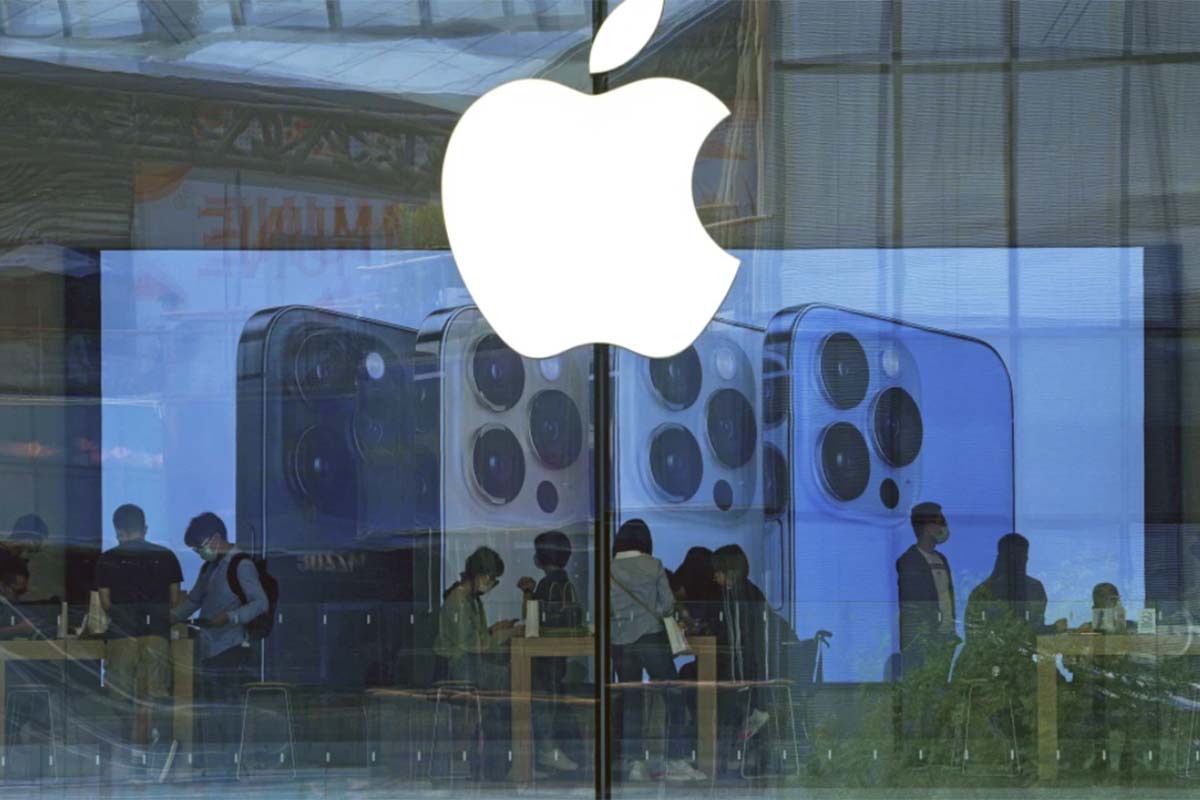
Apple's annual World Wide Developers Conference on Monday is expected to herald the company's move into generative artificial intelligence, marking its late arrival to a technological frontier that's expected to be as revolutionary as the invention of the iPhone.
The eagerly awaited demonstration of AI to be integrated into the iPhone and other Apple products will be the highlight of an event that traditionally previews the next iteration of the software that powers the company's hardware lineup.
Apple's forthcoming generation of software is predicted to be laden with a variety of AI features likely to enhance its often-clumsy virtual assistant Siri, and make photos, music, texting — and potentially even creating emojis on the fly — a more productive and entertaining experience. True to its secretive nature, Apple hasn't provided any advance details about Monday's event being held at the company's Cupertino, California, headquarters.
However, CEO Tim Cook has dropped strong hints during the first few months of this year that Apple is ready to unveil its ambitious plans to enter a space that has been driving an industry boom over the past 18 months.
AI mania is the main reason that Nvidia, the leading maker of the chips underpinning the technology, has seen its market value skyrocket from about $300 billion at the end of 2022 to about $3 trillion. This meteoric rise allowed Nvidia to briefly surpass Apple last week as the second most valuable company in the US. Microsoft earlier this year also overtook the iPhone maker on the strength of its so far successful push into AI.
However, analysts have been growing increasingly concerned that Apple may be falling too far behind in the rapidly evolving AI space, a worry that has been exacerbated by an unusually prolonged slump in the company's sales. Both Google and Samsung have already released smartphone models touting AI features as their main attractions.
That's why analysts such as Dan Ives of Wedbush Securities view Monday's conference as a potential springboard that propels Apple into another robust phase of growth. Ives believes infusing more AI into the iPhone, iPad and Mac computer will translate into an additional $450 billion to $600 billion in market value for Apple.
Monday's conference "represents the most important event for Apple in over a decade as the pressure to bring a generative AI stack of technology for developers and consumers is front and centre," Ives wrote in a research note.
Apple could certainly benefit from the boost that AI may be able to provide, particularly for its 13-year-old assistant Siri, which Forrester Research's Dipanjan Chatterjee now calls an "oddly unhelpful helper."
Meanwhile, OpenAI's ChatGPT is becoming increasingly conversational — so much so that it recently sparked accusations of intentionally copying a piece of AI software voiced by Scarlett Johansson — and Google last month previewed an AI "agent" named Astra that can seemingly see and remember things.
In addition to using AI to enhance Siri, Apple may also collaborate with OpenAI to bring some elements of ChatGPT to the iPhone, according to a wide range of unconfirmed reports leading up to Monday's conference.
This will be the second consecutive year that Apple has caused a stir at its developers conference by using it to mark its entry into a fashionable form of technology that other companies had already been exploring.
Last year, Apple provided an early look at its mixed-reality headset, the Vision Pro, which wasn't released until early this year carrying a $3,500 price tag that has been a significant barrier to gaining much traction. Nevertheless, Apple's push into mixed reality, tweaked with a twist that it bills as "spatial computing," has raised hopes that what is currently a niche technology will evolve into a huge market.
Part of the optimism stems from Apple's history of releasing technology later than others and then using sleek designs and services combined with slick marketing campaigns to overcome its late start and unleash new trends.
"Apple's early reticence towards AI was entirely on brand," Forrester's Chatterjee wrote in a preview of the developers conference. "The company has always been famously obsessed with what its offerings did for its customers rather than how it did it."
Integrating more AI into the iPhone, in particular, will likely raise privacy issues — a topic where Apple has gone to great lengths to assure its loyal customer base that it can be trusted not to delve too deeply into their personal lives.
One way Apple could reassure consumers that the iPhone won't be used to spy on them is to leverage its own chip technology so most AI-powered features are handled on the device itself instead of remote data centres, often called "the cloud." Going that route would also help protect Apple's profit margins because AI technology through the cloud is far more expensive than when it is run solely on a device.
By RSS/AP





-1770286640.jpg)
